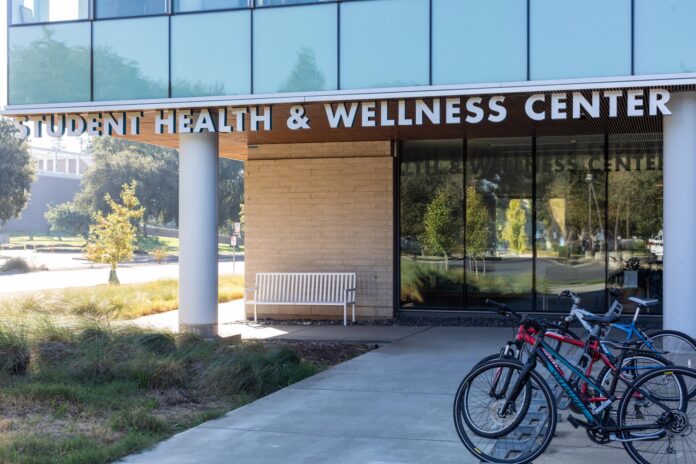The clinic is currently serving individuals in Phase 1B, Tier 1. Student EMTs have been granted opportunities to administer the vaccine
UC Davis continues to prioritize student well-being and campus safety with the opening of a COVID-19 vaccine clinic at the Activities and Recreation Center (ARC).
The clinic opened its doors on Feb. 1 and has been administering approximately 144 vaccines per day to eligible members of the community, according to Dr. Cindy Schorzman, the medical director of Student Health and Counseling Services.
“The clinic is a joint effort between occupational health and student health, determining vaccine eligibility according to the tiered system as established by Yolo County Public Health and CDPH [The California Department of Public Health],” Schorzman said.
The clinic is open Monday through Friday from 9 a.m. to 4 p.m. and aims to make this location as robust as necessary to accommodate the community and vaccine availability, according to Schorzman.
Currently in Phase 1B, Tier 1, the clinic is serving employees of any age who are at risk of exposure. This includes in-person professors, faculty, teaching assistants, police officers, firefighters, child-care employees and dining staff.
People who come to the clinic for the vaccine begin the process by filling out a consent form.
“When they fill out that form, they consult with a nurse on site to go through more information about that and see if they are a good candidate for the vaccine,” Schrozman said. “Most people are.”
If they are a good candidate for the vaccine, they are vaccinated. Then they must rest in the clinic for 15 minutes so that they can be monitored for any reaction their body may have to the vaccine.
The vaccine clinic is also offering student Emergency medical technicians (EMTs) the opportunity to administer vaccines. Brittney Novak, a fifth-year neurobiology, physiology and behavior major and senior student EMT, was one of the student EMTs administering the vaccine.
“As an EMT in normal times, our scope of practice—anything we’re allowed to do—does not normally include being able to administer vaccines, so having this new opportunity is a privilege,” Novak said.
Although everyone’s response to the vaccine is different, Schorzman confirmed the Centers for Disease Control’s (CDC) findings that serious side effects of the vaccine are rare.
“With the first dose, there tends to be mostly arm soreness. With the second dose, a fair number of people have more side effects,” Schorzman said. “[They] feel flu-like side effects, including potential muscle aches and low-grade fevers.”
Student health ambassadors who check daily symptom surveys at the entrance of UC Davis buildings were able to start receiving the vaccine this week. Jessica Weisman, a first-year political science major and student health ambassador, is among those students. Weisman was able to receive the vaccine due to her job’s potential virus exposure.
“Physically, the next day my arm was a little bit sore,” Weisman said. “[I felt] a little tired, slight headache. But it was nothing that was unbearable or unmanageable.”
Despite slightly uncomfortable side effects, the response of Davis residents toward vaccine access has been positive, according to Schorzman.
“People want to get their pictures taken, some people are so excited that they’re crying a little bit,” Schorzman said. “This has been an amazing effort to have the opportunity to be a part of and to be able to start to help people take some control back.”
In addition to rolling out the vaccine, Schorzman said the UC Davis medical team emphasizes conservation to ensure no amount of vaccine goes to waste.
“The Moderna vaccine comes in a vial [and] has either 10 or sometimes 11 [doses],” Schorzman said. “We have a waitlist of people who qualify in the current tier but were unable to get into those scheduled appointments, but they guarantee they can be there in 30 minutes or less once we call them. At the end of the day, we have zero doses remaining.”
Davis remains at the forefront of COVID-19 prevention protocol and efficient efforts to keep the campus and community safe—efforts that were recently featured in an article by The New York Times.
“I think we’re super lucky that UC Davis in general has been a bit of a trailblazer for other universities,” Weisman said. “The sooner everyone gets vaccinated and gets their two doses, the sooner we can go back to whatever normal is on the other side of this.”
Written by: Maddie Duley — campus@theaggie.org





